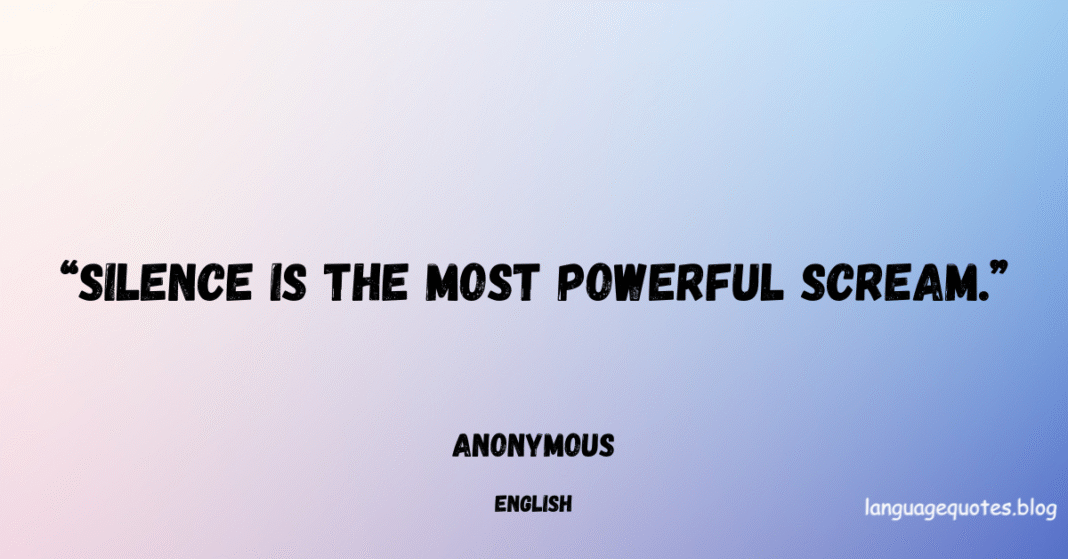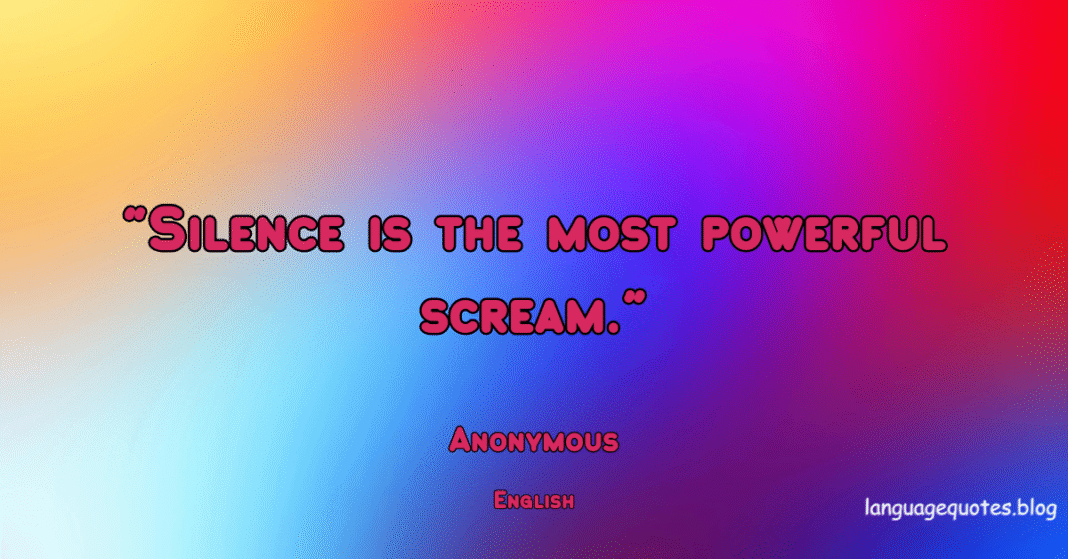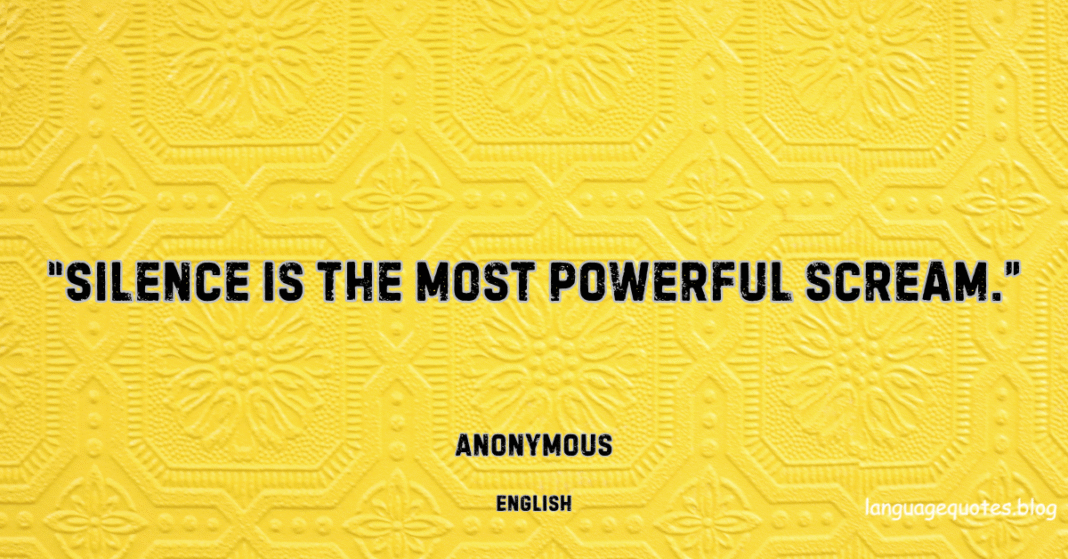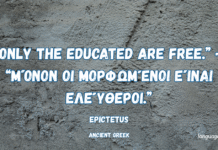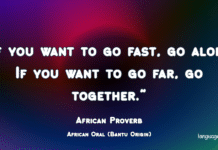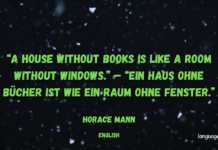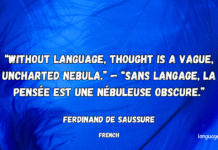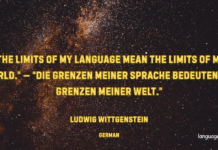“Silence is the most powerful scream.”
— Anonymous
💬 2-Line Comment:
Silence doesn’t mean absence; it often hides a storm of emotions. Sometimes, the quietest people are screaming the loudest inside.
🔹 Introduction
At first glance, the quote “Silence is the most powerful scream” seems like a paradox—how can silence, the absence of sound, be compared to a scream, the most intense expression of emotion? Yet, in those few words lies a profound truth about human behavior, emotional depth, and communication beyond language. This anonymous quote captures something almost every person has experienced: the moments when our silence speaks louder than any words ever could.
This quote has become increasingly relevant in a world filled with noise. From social media rants to constant notifications, everyone is always saying something. But silence—intentional silence—can be both louder and more powerful than the noisiest declaration.
🔹 The Unspoken Depth of Silence
Silence often holds everything that cannot be said. When words fail us—during grief, heartbreak, trauma, or even awe—silence becomes our only voice. In relationships, for example, when someone withdraws or chooses not to respond, that silence can be more cutting, more alarming, and more emotionally charged than yelling.
When someone we care about gives us the “silent treatment,” we feel it like a scream in our minds. The emotional power of silence lies in its ambiguity. It forces others to fill in the blanks, to interpret what is left unsaid. And often, the imagination runs wild, turning silence into a psychological echo chamber.
🔹 Silence as Resistance
Historically, silence has been a form of resistance. Think of silent protests and hunger strikes. When words are restricted, silence becomes a weapon. It disrupts norms, draws attention, and amplifies a message without saying a single word.
In literature and film, silence is often used to create dramatic tension. A character’s quiet moments can be filled with raw, internal conflict. The absence of dialogue can scream of repression, sadness, or boiling anger. In such portrayals, silence becomes a character in its own right—a force to be reckoned with.
🔹 Mental Health and Silent Struggles
This quote also touches on mental health, a topic often spoken about in hushed tones. Many people suffering from depression, anxiety, or trauma go silent—not because they’re fine, but because they’re overwhelmed. Their silence is a cry for help that doesn’t always get heard.
It’s important to recognize that not everyone who is suffering will speak up. For some, the loudest scream for help is their silence—cancelling plans, avoiding communication, or just “checking out.” In this context, this quote serves as a powerful reminder to look beyond appearances and pay attention to those who fall quiet.
🔹 Emotional Intelligence and the Power of Presence
Being able to interpret silence and respond to it meaningfully is a sign of emotional intelligence. Not everyone is comfortable with silence—it makes many feel awkward. But those who understand the value of silence know that it’s not always something to be filled. Sometimes, being present with someone in silence is the most supportive thing you can do.
Consider moments like sitting with a grieving friend or watching a sunset with a loved one. Words aren’t needed. The silence itself is filled with emotion, trust, and meaning. In these moments, silence becomes a shared language, a silent scream of understanding, love, or pain.
🔹 In Digital Times: Silence as Absence
In the age of digital communication, silence has taken on a whole new weight. Being left “on read,” not getting a reply, or being ignored on social media can evoke strong emotions. People often interpret online silence as rejection, disinterest, or judgment.
In digital relationships, silence has become a powerful statement. It often leads to overthinking and misinterpretation, proving again that silence is never truly empty—it echoes.
🔹 Conclusion
“Silence is the most powerful scream” is a quote that resonates deeply with emotional, psychological, and social layers of life. It reminds us that words aren’t the only form of expression—and in some cases, they aren’t even the strongest. Silence can express love, pain, defiance, sadness, or presence far more powerfully than speech.
This quote invites us to listen carefully—not just to what is being said, but to what isn’t. It reminds us to be emotionally aware, to show up for those who go silent, and to honor the unspoken messages that exist between people.
In a world addicted to sound and speed, silence remains a quiet scream that speaks volumes—if only we are wise enough to hear it.


